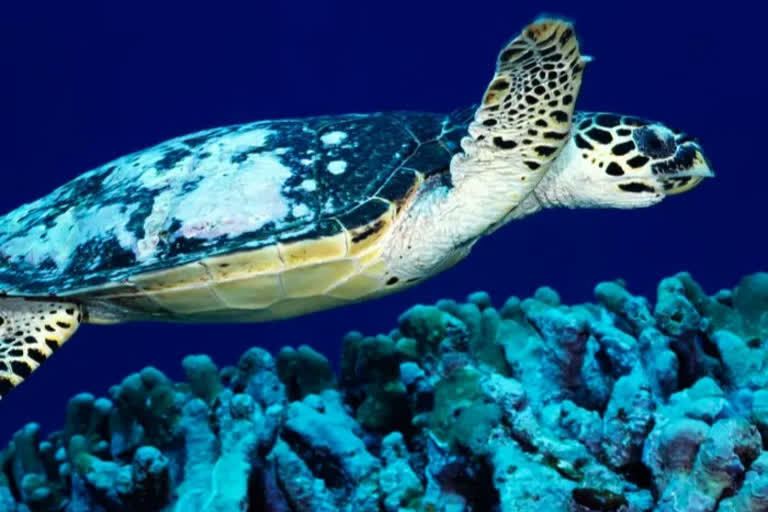Bangkok: Rare sea turtles and reef sharks are some of the endangered species that have been sighted in recent weeks off the coast of Thailand, where beaches have been emptied of tourists due to the COVID-19 pandemic, although experts warn that the pandemic may also hurt marine life.
In early April, Thailand which had close to 40 million tourists last year, closed its borders to the arrival of foreign visitors.
"With the pandemic, human activities have reduced. Businesses have closed and motorboat operations for tourists have stopped. This translates to fewer factors disrupting the life of animals. Now, they can go out to look for food more peacefully," Teeranai Phetsom, a marine biologist operating in several natural parks along the west coast, told.
According to the expert, there are at least 130 dugongs in the area - an endangered marine animal that closely resembles manatees - and around 100 turtles, in addition to a good number of dolphins which, until recently, avoided transit routes of boats carrying tourists.
The COVID-19 crisis has dealt a hard blow to the country's tourism sector, which accounts for between 12 percent and 20 percent of the national GDP, and there are forecasts that the number of tourists could decline by up to 50 percent.
Read Also: Pak PM to get tested for COVID-19, may go into self-quarantine
The government recently set up a committee for the recovery of the sector although a date has not been set to resume activity.
Thailand's health authorities have detected 2,811 COVID-19 infections in the country so far including 48 deaths.
Teeranai said that the decline in tourism in the medium term, despite hurting the economy, will prove beneficial for animals.
"Every year many animals die due to human activities. Without that factor many marine lives can be saved," the expert added.
Last week, marine guards spotted about 20 black-tipped shark pups, a species decimated off the coast of Thailand, near a popular beach in the Similan Natural Park, one of the country's most popular tourist destinations.
The Department of Marine and Coastal Resources is working on several projects to recover several overexploited coastal areas and fishing grounds.
Jakpan Muangyim, one of the Department's regional officials, told Efe news that while the decline in the number of tourists helps wildlife, the main factor in the resurgence of some species is more linked to the protection of natural resources and fishing restrictions.
Since last November, 11 nests of leatherback turtles and one of sea green turtles, both of which are on the list of threatened species, have been found on the west coast of the country, according to Jakpan.
(IANS)



